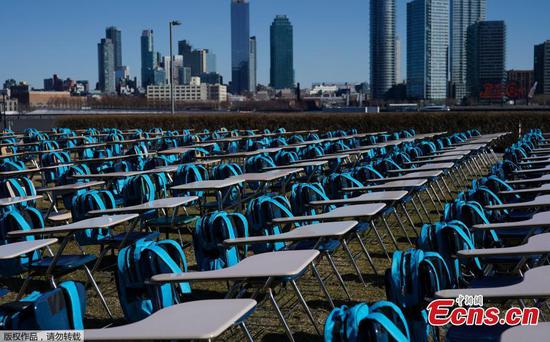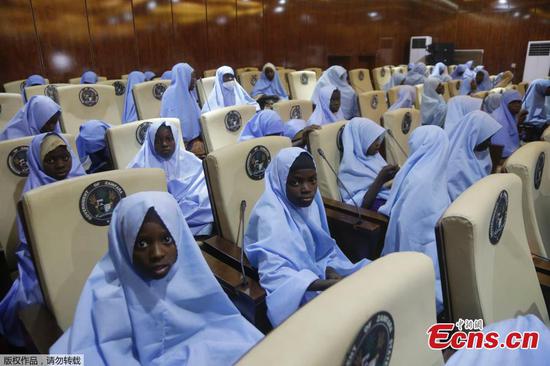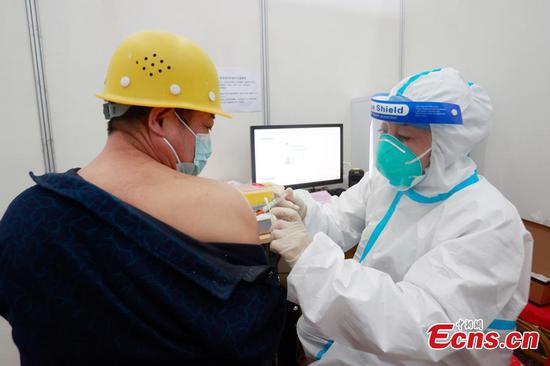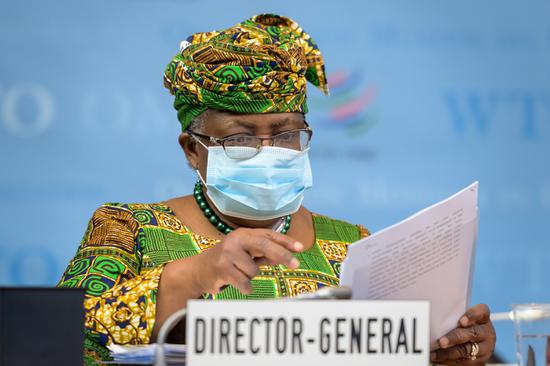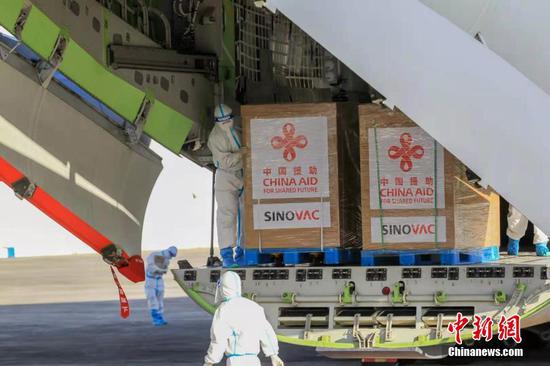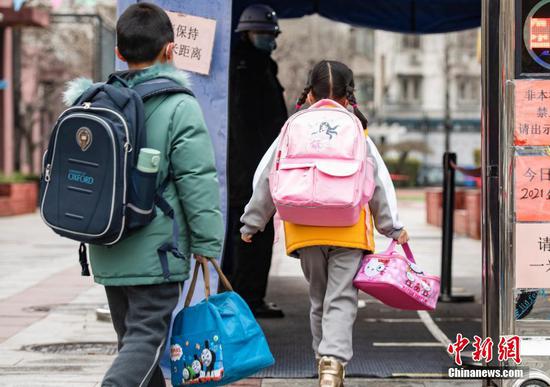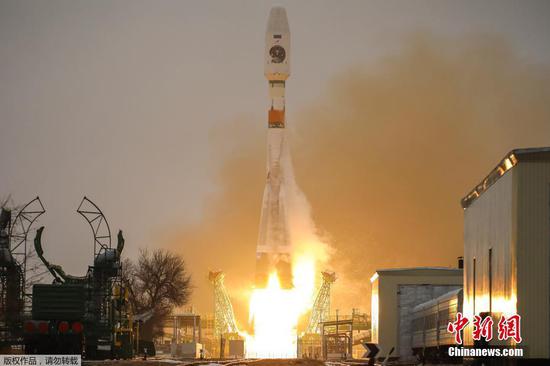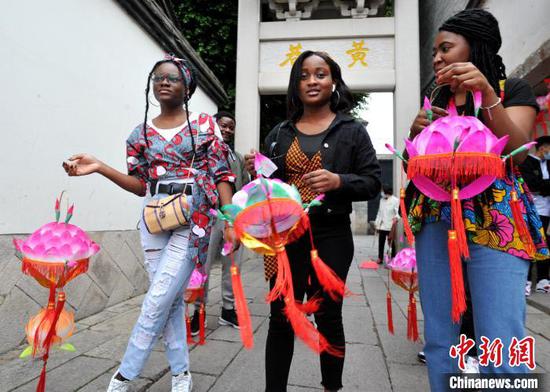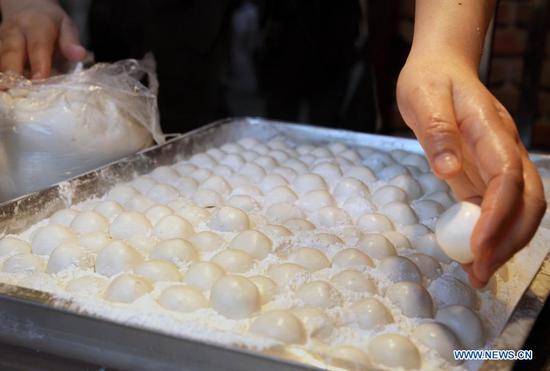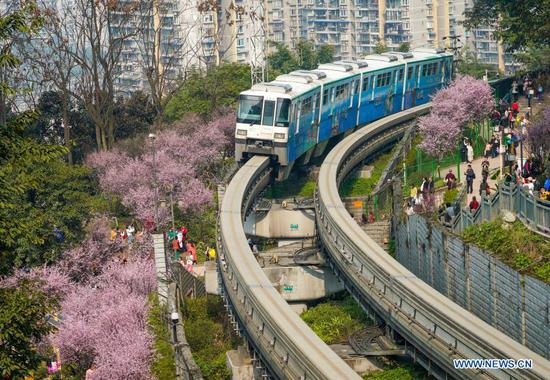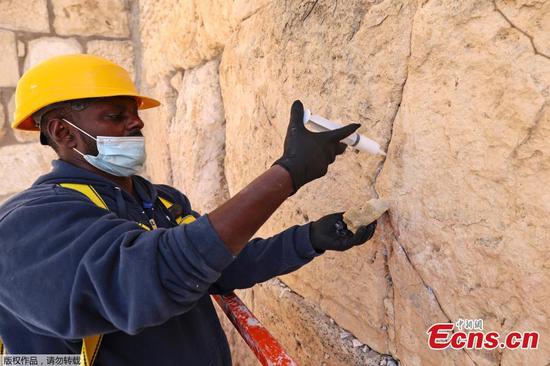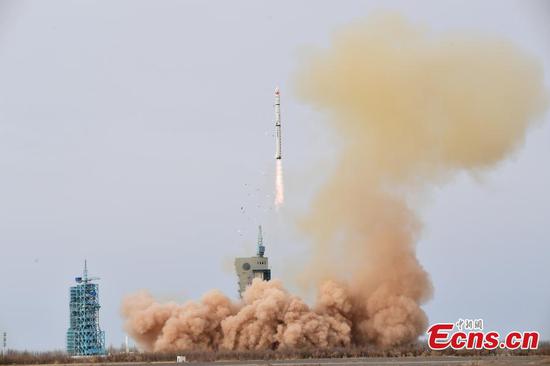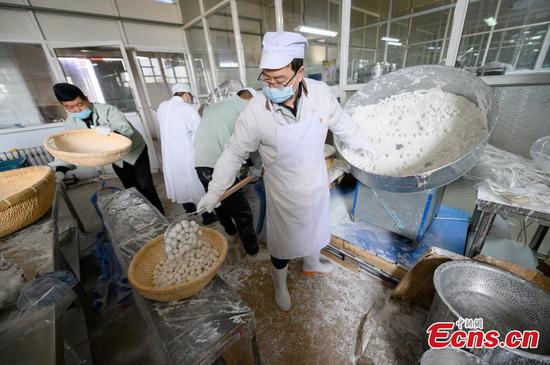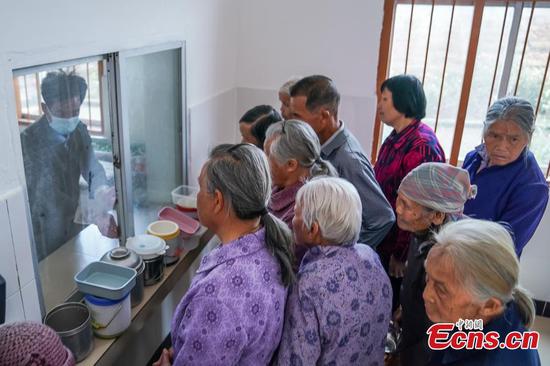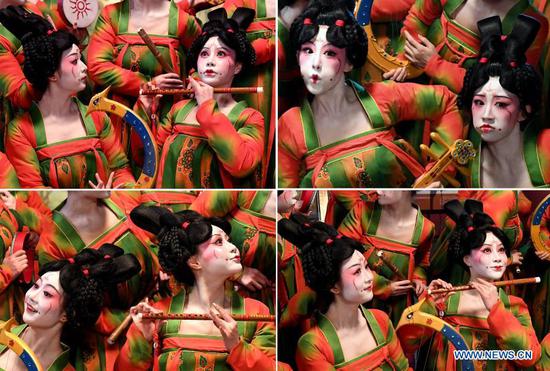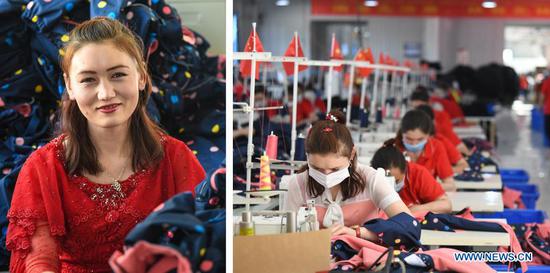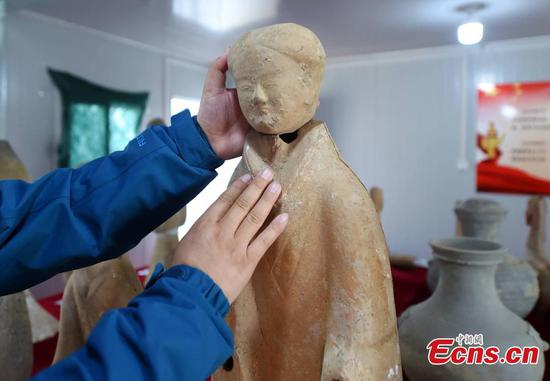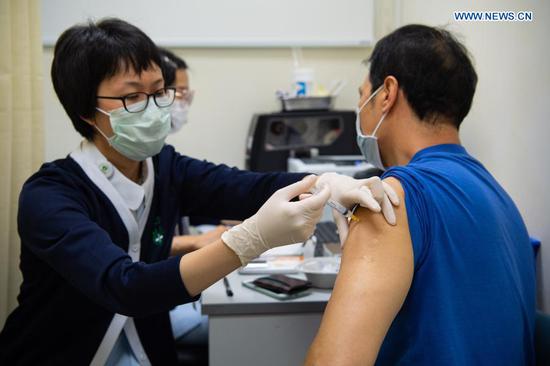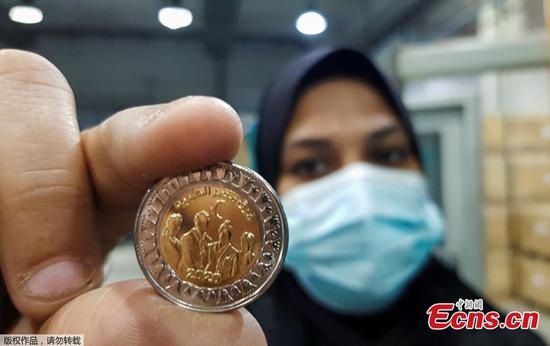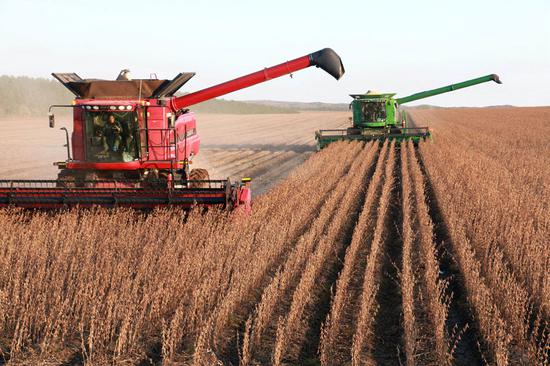
Soybeans are harvested in Heilongjiang province. (Photo/Xinhua)
Lawmakers, political advisers made 405 proposals to predecessor last year
A central agency tasked with carrying out China's national rural vitalization strategy will continue to work under the oversight of lawmakers and political advisers, whose advice helped authorities end rural poverty recently, an official said on Tuesday.
Deputies to the National People's Congress and members of the National Committee of the Chinese People's Political Consultative Conference-China's top legislature and top political advisory body-are scheduled to hold plenary sessions in Beijing later this week that are known as the two sessions.
Hong Tianyun, a deputy head of the National Administration for Rural Vitalization, said its predecessor, the State Council Leading Group Office of Poverty Alleviation and Development, handled 405 motions and proposals submitted during last year's two sessions, a 39 percent increase year-on-year. Hong was a deputy head of the office.
Most suggestions called for stepping up support for rural industries and employment, vulnerable families and the transition to the national rural vitalization strategy, he said.
China entered the last stretch of its sweeping poverty relief campaign last year, against the headwinds of the COVID-19 pandemic.
"We have implemented all the suggested reforms on time, and deputies and committee members' satisfaction rate was 100 percent," he said.
The administration was unveiled last week, replacing the former anti-poverty office.
Hong said one suggestion last year was that China should keep poverty-related assistance in place after wrapping up its poverty relief campaign. Some others suggested offering continuing assistance to those who shook off poverty through relocation programs, which helped farmers move closer to hospitals and schools but can also lead to employment and social governance problems, he said.
"Some of the suggestions are forward-looking, targeted and easy to implement, and they have worked as an important reference for our job," he said.
"To prevent re-impoverishment is the top priority," he said, as China works to consolidate the fruits of its decadeslong poverty reduction campaign.
Hong told a news conference in Beijing that he and his colleagues at the new administration welcome the oversight of NPC deputies and CPPCC National Committee members, as they work to prevent farmers sliding back into poverty.
Figures released at the news conference by the State Council Information Office showed that central government bodies handled more than 12,000 motions and proposals last year, all of which have been implemented.
The central authorities announced last week that China's poverty relief campaign has ended in a "complete victory", with almost 100 million rural residents shaking off absolute poverty since late 2012.
This year marks the centenary of the founding of the Communist Party of China, as well as an important shift in China's rural policies, from eradicating extreme poverty to vitalizing rural regions, that is part of a broader effort to rejuvenate the Chinese nation by the time the People's Republic of China celebrates its centenary in 2049.









